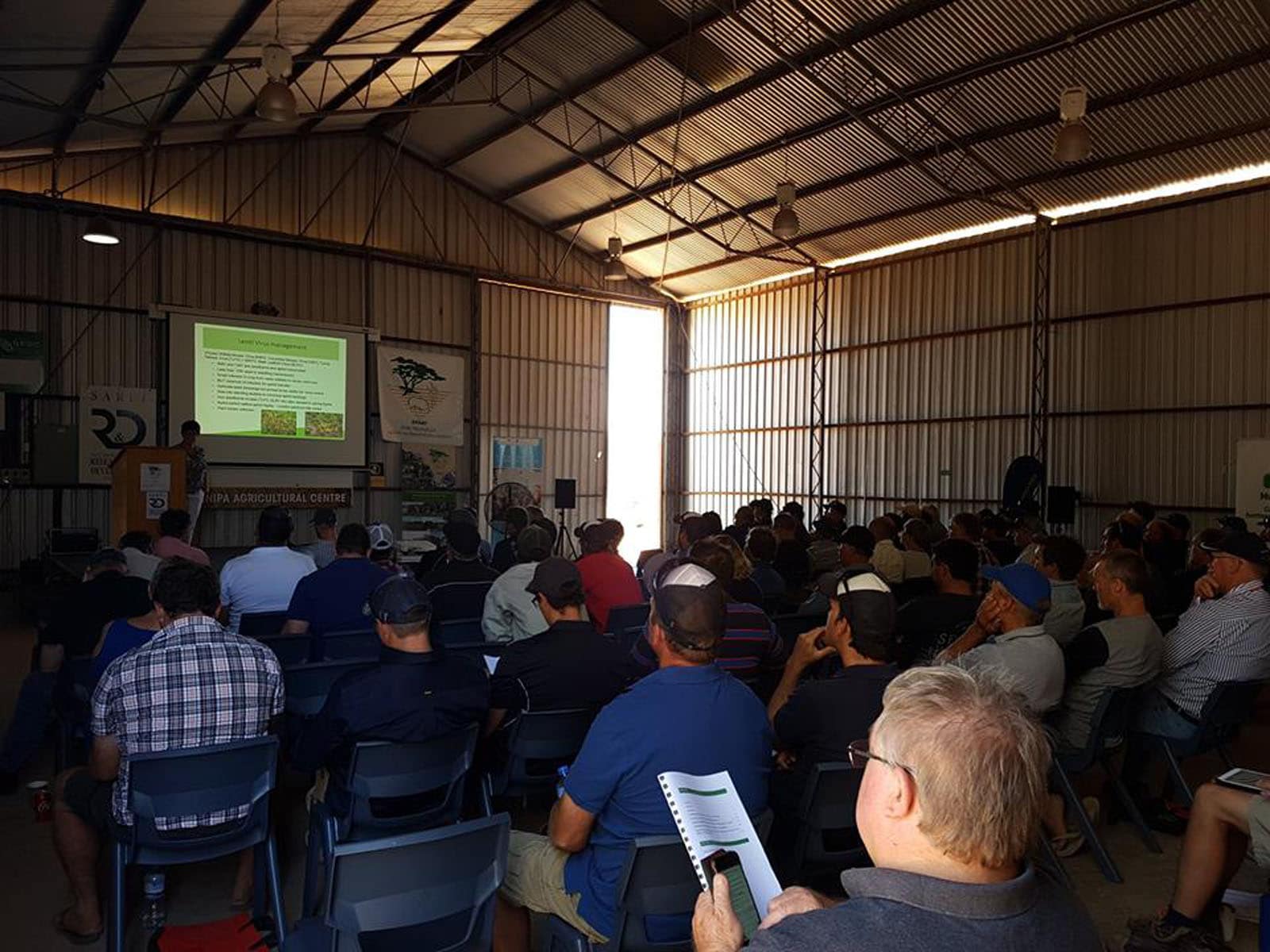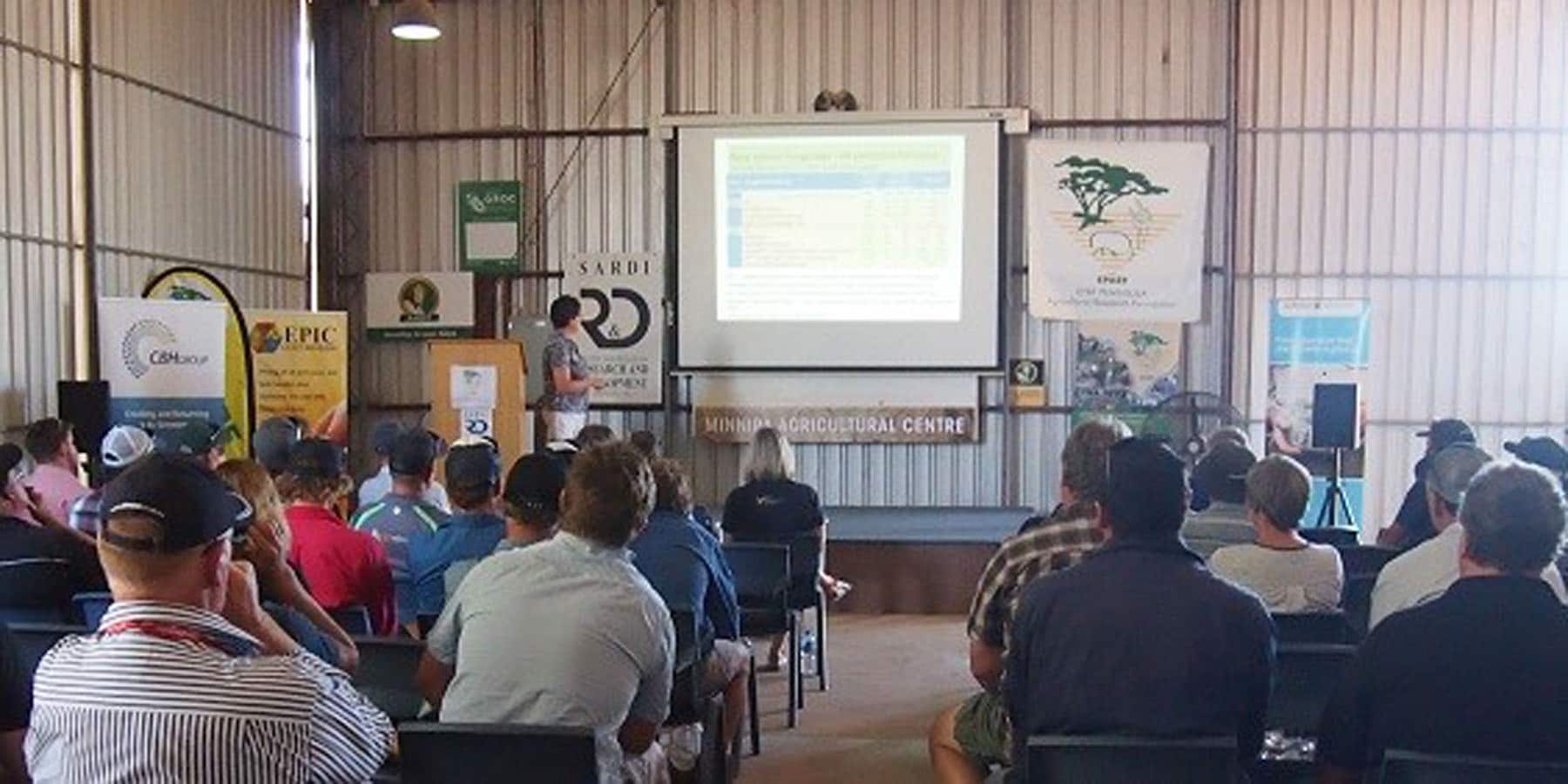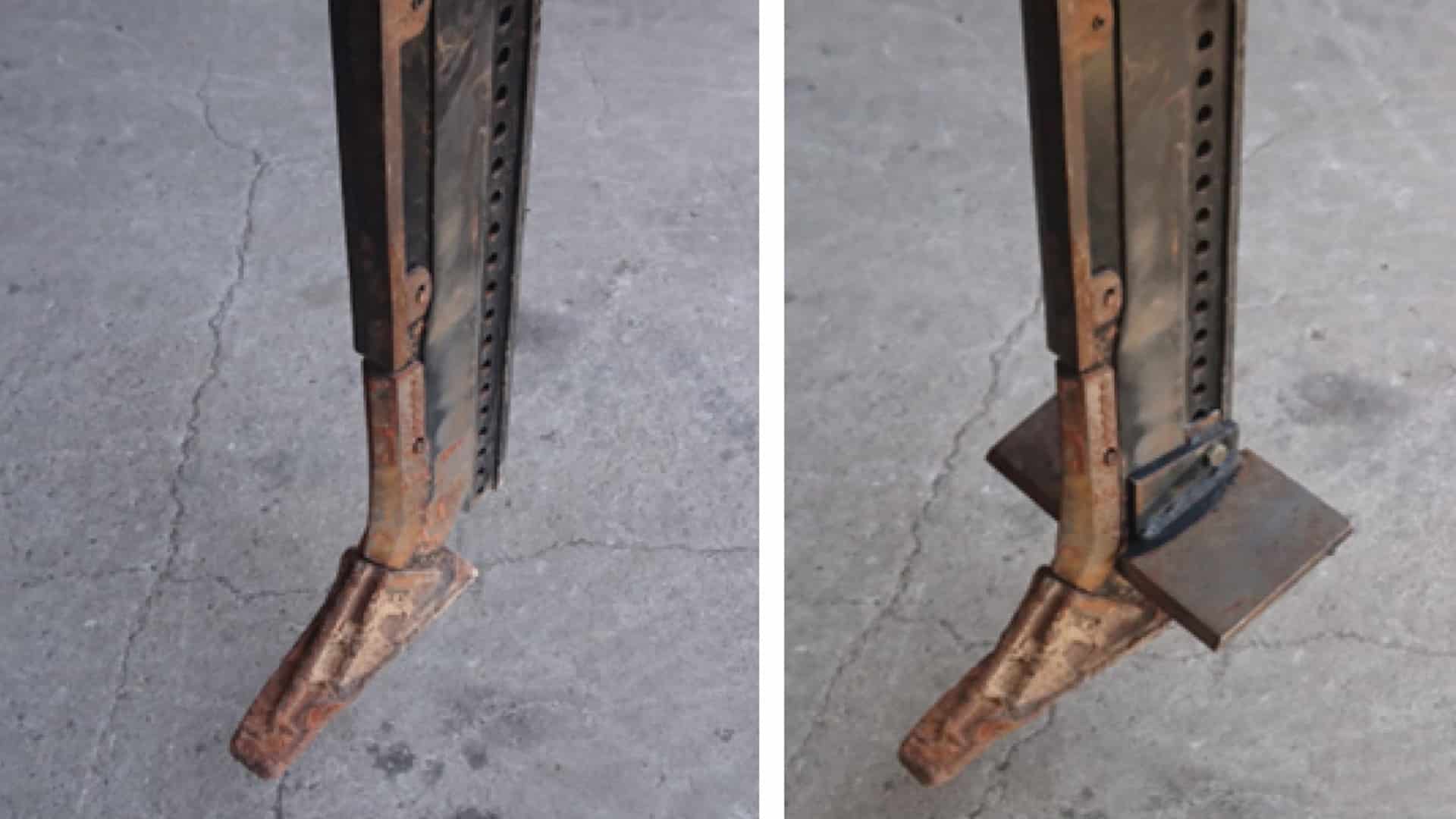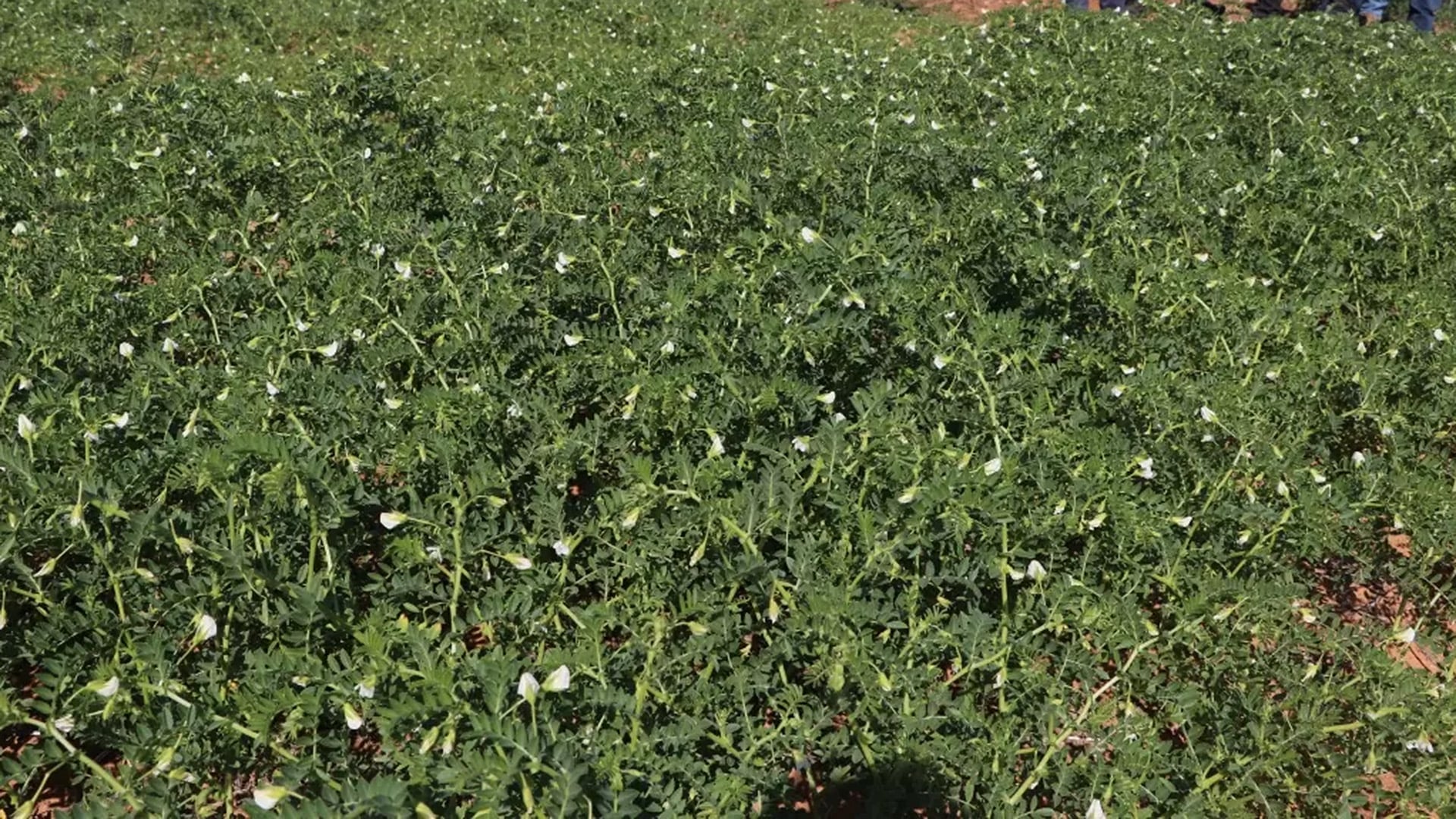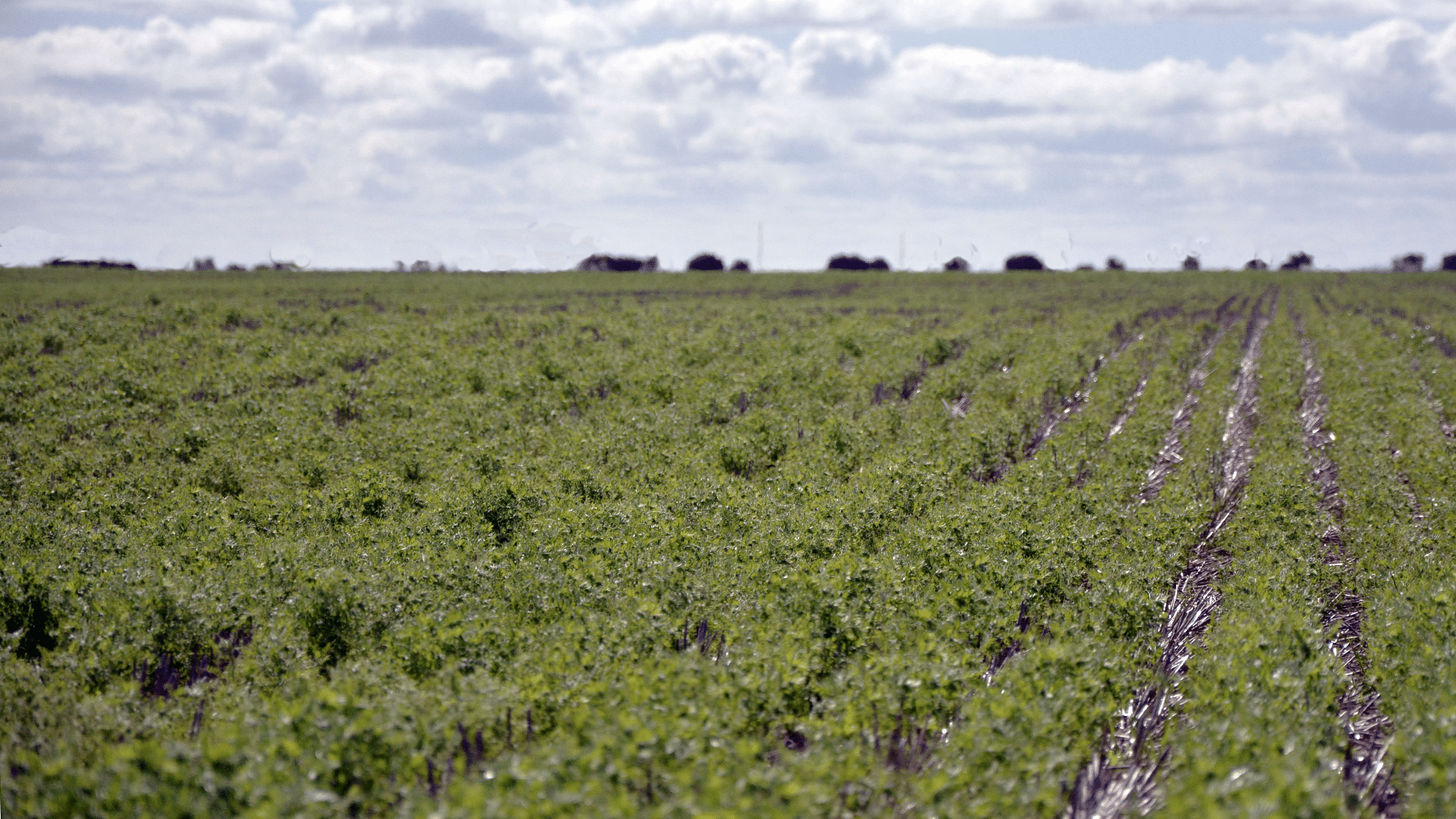START
FINISH
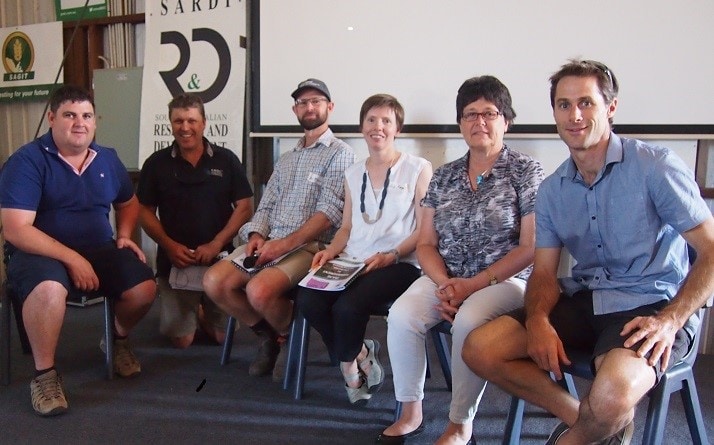
Summary
The Eyre Peninsula Agricultural Research Foundation (EPARF) held a member day at the Minnipa Agriculture Centre on 14 February 2018 to provide information on pulse management for growers in low rainfall farming systems.
Several researchers and agronomists presented on topics including agronomic considerations, inoculation, disease management, variety choice and gross margins.
The majority of those in attendance indicated they had gained a better understanding of how to increase pulse production and manage pulse crops.
Background
More growers on the Eyre Peninsula were considering including pulses in their cropping rotation, but there was a lack of expertise and knowledge locally.
EPARF provides an annual event to its 300 members focused on existing issues which impact on the profitability and sustainability of low rainfall farming systems.
After identifying the knowledge gap concerning pulses, EPARF organised an additional member day to address the topic, organising researchers and consultants with sound knowledge about pulses to present to local growers.
Research Aims
The objective of this project was to invite five expert speakers to the Eyre Peninsula to deliver findings and knowledge to EPARF members ranging from research and grower experience outcomes.
In The Field
The member day attracted 98 people to the Minnipa Agriculture Centre, with several expert speakers presenting their findings and knowledge sourced from research, trials and grower experience outcomes.
Global Grain Genetics pulse research scientist Larn McMurray presented on agronomic considerations when growing pulses in low rainfall regions. He emphasised the importance of careful soil type and paddock selection in conjunction with early sowing, variety choice and sound market awareness in achieving successful pulse production in low rainfall environments.
SARDI’s Dr Liz Farquharson presented on optimising inoculation in pulse production, indicating peat slurry inoculants applied to seed had performed well, but outcomes were dependent on sowing conditions. She also urged growers to check the Back Pocket Guide on inoculating legumes.
SARDI’s Dr Jenny Davidson presented findings and information from research on diseases in field peas, chickpeas, lentils, faba beans, vetch and lucerne. Ms Davidson emphasised the importance of monitoring Ascochyta blight changes in lentils, faba beans and chickpeas and encouraged attendees to send samples to SARDI for testing.
Yorke Peninsula agriculture consultant Sam Holmes delivered advice on growing lentils including management, paddock selection, timing and the need to understand the market and gross margins with growing crops in rotation.
Mildura-based agronomist Michael Moodie presented research results on break crop productivity and profitability, as well as his experiences with legume break crops in the Mallee.
Eyre Peninsula agricultural consultant Andy Bates led an interactive panel session with the speakers, giving attendees the opportunity to ask questions.
Results
The event improved the knowledge of those in attendance, with the vast majority of growers indicating they had gained a better understanding of how to increase pulse production and better manage pulse crops.
This information was gathered by Minnipa Agriculture Centre project leader Naomi Scholz using keypad technology, with 97 per cent of attendees saying they had learned something new by attending the event.
The main take-home messages for growers were:
• Mallee research results showed that season and soil type had a greater impact on productivity than crop choice.
• Yield and price variability highlight the need for a diversity of break crops to be available in low rainfall environments.
• Peat slurry inoculant applied to seed provides a consistent and high level of nodulation when sown into moist soil.
• With increasing interest in growing pulses in low rainfall environments, disease management strategies need to be finetuned. That being said, all growers need to manage crops to minimise disease risk.
• Good management, paddock selection and timing are the keys to success in growing lentils, taking priority over every other crop for importance of timing.
Project Participants
Eyre Peninsula Agricultural Research Foundation: Simon Guerin, Dot Brace.
The Problem
Identifying responsive existing issues impacting on the profitability and sustainability of low rainfall farming systems.
The research
Holding an annual event for EPARF’s 300 members to continue building capacity of the agricultural sector. Pulse management for low rainfall farming systems was the focus of the 2018 event.
More information
Dot Brace, EPARF
T: 08 8680 6202, M: 0427 013 034
E: [email protected] or [email protected]
Value for Growers
Increased knowledge was reported by the vast majority of growers in attendance.
For those not in attendance, a summary of the presentations and photos were made available on the EPARF website.
The event achieved media coverage, with ABC journalist Brooke Neindorf attending and interviewing speakers for the ABC Country Hour program. Photos and a written summary of the event were sent to the West Coast Sentinel and Stock Journal newspapers.

